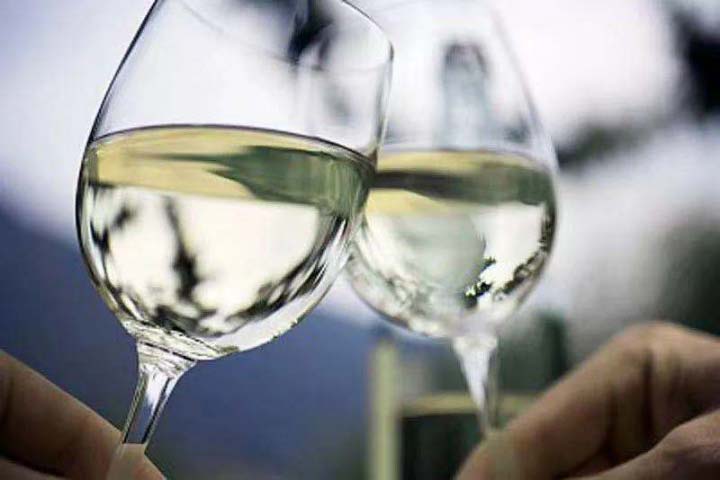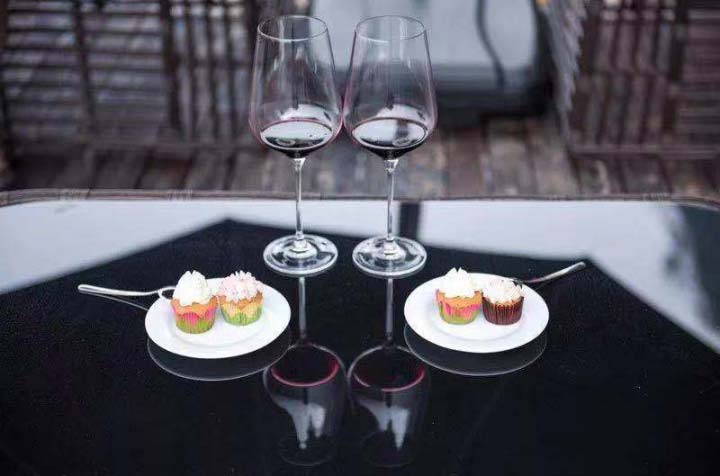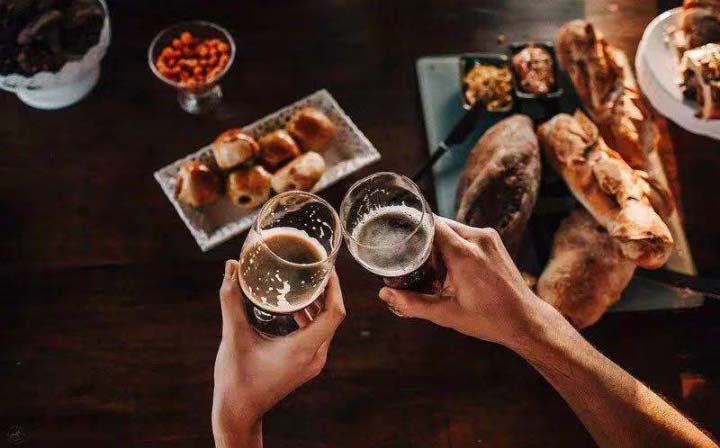Whether it's a banquet, a wine party or an ordinary cocktail party, people always like to raise their glasses when they drink, which has long become a common sense when people drink. However, how was this custom formed? When you drink a glass of wine, what are the common senses that need attention?

The word Toast in English comes from the habit of drinking a glass of wine.
In the ancient UK, guests were required to take turns to drink the same glass of wine in order to pay tribute to the owner. When the glass is delivered to the owner, there is only the last bit of wine in the cup and the bread used to make the wine .Therefore, bread toast also gradually extended the meaning of "toast".

In modern times, the custom of drinking a glass of wine has gradually been eliminated. Everyone has their own glass of wine. Instead, they will lift the glass together to celebrate. And the "clinking cup" behavior was added to the toasting ceremony, there are several reasons:
1. Satisfy the sensory experience
Before the clinking of the cup was invented, the toasting ritual contained four senses of sight, taste, smell and touch, but only lacked hearing. The clinking of the cup just fills the missing hearing and makes the sensory experience of the toast more perfect.
2. Express appreciation for the wine glass
Unlike the rest of the cups, the goblet used to drink wine is an art, and people begin to appreciate the wonderful sounds of tapping the goblet. The more pleasant the clinking sound, the more refined the wine glass, the “clinking cup” is also regarded as an appreciation and affirmation of the wine glass.
3. Enhanced sense of ritual and participation
A person who drinks alcohol does not want to clink a cup. Only when sharing wine with others, will there be a clinking idea. And this simple action allows everyone to participate in this activity. This action not only has a sense of ritual, but also increases people's sense of participation in the team.
4. Active atmosphere
In modern life, there are many "lower heads", and even in the party, they often hold their mobile phones and let go. The act of toasting and clinking can always let people put down their mobile phones and focus their attention on the gatherings in front of them. It not only gives people a lot of opportunities for communication, but also a good way to enhance their feelings.
5. Symbolize unity
Clinking glasses are group movements. When the wine glasses are tightly touched together, the people who symbolize drinking are also closely linked. For the wine itself, the clinking action regroups the already dispersed liquor, and there is also the meaning of reunion.

So, what are the things you need to pay attention to when you drink glasses while drinking wine?
Unlike beer and white wine, drinking wine gives more elegance. Every time you pour a little less wine, slowly drink, it is an elegant expression. If the wine is too full, it is not only visually unsightly, but also easy to spill the wine when it is clinking, which will greatly reduce the artistic concept of drinking wine. In general, the wine can be poured to the widest part of the wine glass belly. If you use a champagne glass, it is best to fall to 3/4.

Unlike a white wine glass, a goblet needs to be touched with a wine glass when it is clinking. The mouth of the wine glass is the thinnest position of the cup. If you use the mouth of the wine glass, it is easy to break the wine glass. The belly of the wine glass is the hardest part of the wine glass. Touching the belly of the wine glass with your own wine glass can not only make a good sound, but also avoid the broken glass.

When you use a goblet to clink a cup, you don't need to use too much force. A light touch can produce a crisp sound. Therefore, it is best to master the strength when clinking glasses, and the movement must be gentle, which is also in line with the elegant mood when drinking wine.
After clinking glasses, many people are used to "deep feelings, a bit stuffy" to express respect for others. But in Western culture, there is no such saying. Drinking more and drinking less is purely your own will.